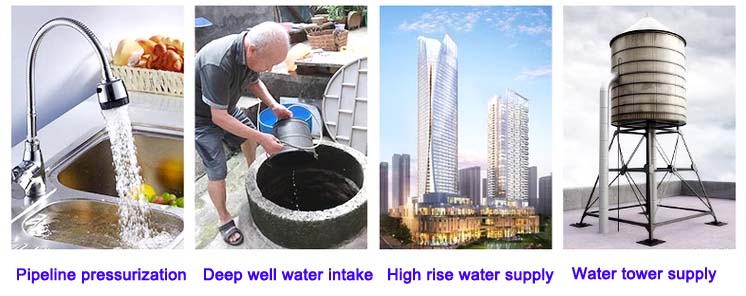Italian
- Afrikaans
- Albanian
- Amharic
- Arabic
- Armenian
- Azerbaijani
- Basque
- Belarusian
- Bengali
- Bosnian
- Bulgarian
- Catalan
- Cebuano
- Corsican
- Croatian
- Czech
- Danish
- Dutch
- English
- Esperanto
- Estonian
- Finnish
- French
- Frisian
- Galician
- Georgian
- German
- Greek
- Gujarati
- Haitian Creole
- hausa
- hawaiian
- Hebrew
- Hindi
- Miao
- Hungarian
- Icelandic
- igbo
- Indonesian
- irish
- Italian
- Japanese
- Javanese
- Kannada
- kazakh
- Khmer
- Rwandese
- Korean
- Kurdish
- Kyrgyz
- Lao
- Latin
- Latvian
- Lithuanian
- Luxembourgish
- Macedonian
- Malgashi
- Malay
- Malayalam
- Maltese
- Maori
- Marathi
- Mongolian
- Myanmar
- Nepali
- Norwegian
- Norwegian
- Occitan
- Pashto
- Persian
- Polish
- Portuguese
- Punjabi
- Romanian
- Russian
- Samoan
- Scottish Gaelic
- Serbian
- Sesotho
- Shona
- Sindhi
- Sinhala
- Slovak
- Slovenian
- Somali
- Spanish
- Sundanese
- Swahili
- Swedish
- Tagalog
- Tajik
- Tamil
- Tatar
- Telugu
- Thai
- Turkish
- Turkmen
- Ukrainian
- Urdu
- Uighur
- Uzbek
- Vietnamese
- Welsh
- Bantu
- Yiddish
- Yoruba
- Zulu
Telephone: +86 13120555503
Email: frank@cypump.com
Ott . 19, 2024 11:23 Back to list
'efficient peristaltic pump for handling slurry with precision ...'
Efficient Peristaltic Pump for Handling Slurry with Precision
In industries ranging from pharmaceuticals to wastewater treatment, the ability to efficiently transport fluids is of paramount importance. Slurries—mixtures of solids and liquids—pose unique challenges in this regard, requiring solutions that ensure precision and reliability. One standout technology in this field is the peristaltic pump, known for its ability to handle viscous and abrasive fluids with ease, making it a preferred choice for slurry applications.
What is a Peristaltic Pump?
A peristaltic pump operates on a straightforward yet effective principle it uses a rotor with a series of rollers that compress a flexible tube or hose, pushing the fluid forward in a wave-like motion. This mechanism allows the fluid to be contained entirely within the tube, minimizing the risk of contamination and wear. The gentle pumping action is particularly beneficial for handling slurries, as it reduces shear stress and potential damage to the solids within the mixture.
Advantages of Peristaltic Pumps for Slurry Handling
1. Self-Priming Capability Peristaltic pumps can efficiently self-prime, meaning they can start pumping without needing to fill the pump chamber with fluid first. This feature is critical when dealing with slurries that may contain air or gas pockets.
2. Gentle Handling of Solids The gentle pumping action minimizes the degradation of solid particles, ensuring that the mixture maintains its integrity throughout the transport process. This is especially important in industries where the quality of the final product is paramount.
3. Accurate Flow Control Peristaltic pumps allow for precise control over flow rates, which is essential for applications requiring specific dosing or mixing ratios. Adjusting the speed of the motor directly influences the flow rate, enabling operators to adapt to changes in process requirements seamlessly.
4. Versatile Materials The flexibility in materials used for the hose or tube means that peristaltic pumps can handle a wide range of slurries, including those that are corrosive or abrasive. Compatibility with different materials ensures that the pump can be tailored to suit specific industry needs.
5. Low Maintenance Costs Since the fluid does not come into contact with moving parts, wear and tear on components is significantly reduced. Regular maintenance is primarily focused on replacing the tubing, which is a straightforward and cost-effective process.
'efficient peristaltic pump for handling slurry with precision ...'

Applications of Peristaltic Pumps in Slurry Management
Peristaltic pumps find applications in various sectors
- Mining and Mineral Processing They are often used to transport slurries containing valuable minerals, where precise flow control and the preservation of particle integrity are vital.
- Food and Beverage Industry In this sector, peristaltic pumps are used for transporting slurries like fruit pulps and sauces, ensuring sanitary conditions and compliance with food safety regulations.
- Wastewater Treatment The handling of sludge and other waste materials in treatment plants often relies on the precision and reliability of peristaltic pumps to maintain consistent flow rates.
- Pharmaceuticals In pharmaceutical manufacturing, the accuracy and contamination-free transport provided by peristaltic pumps are critical for producing high-quality products.
Challenges and Solutions
While peristaltic pumps offer many advantages, they are not without challenges. One primary concern is the potential for tube wear due to continuous compression. However, advancements in tubing materials, like reinforced rubber or thermoplastic elastomers, have significantly increased durability and lifespan. Moreover, regular monitoring of pump performance can help identify when tubing replacements are necessary, ensuring consistent operational efficiency.
Conclusion
The efficient peristaltic pump stands out as an ideal solution for handling slurries with precision across multiple industries. Its unique operational principles, combined with the numerous advantages it offers—such as self-priming capabilities, gentle handling of solids, and low maintenance requirements—make it a valuable asset. As industries continue to evolve and demand higher standards for fluid transport, peristaltic pumps will undoubtedly play a crucial role in meeting these needs. With ongoing innovations in materials and technology, their ability to efficiently and precisely handle challenging slurry applications will only improve, solidifying their position as a key player in fluid management systems.
-
High-Performance Air Pumps for Sand & Gravel | Efficient Transport
NewsAug.03,2025
-
ISG Series Vertical Pipeline Pump - Chi Yuan Pumps Co., LTD.|Energy Efficiency, Corrosion Resistance
NewsAug.03,2025
-
ISG Series Pipeline Pump - Chi Yuan Pumps | Energy Efficiency&Compact Design
NewsAug.03,2025
-
ISG Series Vertical Pipeline Pump - Chi Yuan Pumps Co., LTD.|High Efficiency, Low Noise, Durable
NewsAug.02,2025
-
ISG Series Vertical Pipeline Pump - Chi Yuan Pumps | High Efficiency, Low Noise
NewsAug.02,2025
-
ISG Series Vertical Pipeline Pump- Chi Yuan Pumps Co., LTD.|High Efficiency&Compact Design
NewsAug.02,2025










